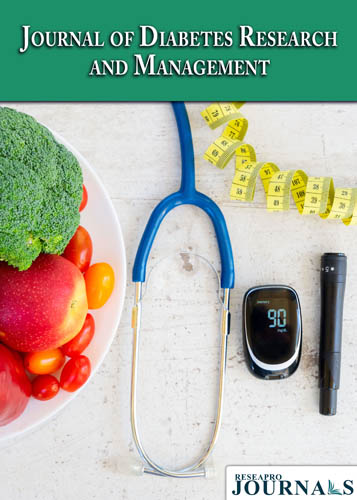
Journal of Diabetes Research and Management
OPEN ACCESS

OPEN ACCESS

Department of Health Sciences, University of Pretoria, Pretoria, South Africa
Type 2 diabetes mellitus (T2DM) is a metabolic condition defined by insulin resistance, a relative lack of insulin, and elevated blood sugar levels. The worldwide incidence of T2DM has surged significantly over the past few decades, accompanied by a concerning rise in CVD among those impacted. Cardiovascular difficulties are the main reason for morbidity and mortality in T2DM, driven by an interplay of hyperglycemia, dyslipidemia, hypertension, and chronic inflammation. These factors contribute to accelerated atherosclerosis, endothelial dysfunction, and cardiomyopathy. Emerging evidence highlights the role of advanced glycation end products (AGEs), oxidative stress, and subclinical inflammation in the pathogenesis of cardiovascular complications in T2DM. Furthermore, traditional risk factors like obesity, smoking, and sedentary lifestyle synergize with diabetes-specific mechanisms, compounding the risk of CVD. This review explores the multifactorial mechanisms underlying the increased cardiovascular risk in T2DM and examines contemporary strategies for risk mitigation, including pharmacological therapies such as sodium-glucose co-transporter 2 (SGLT2) inhibitors, glucagon-like peptide-1 receptor agonists (GLP-1RAs), and statins, as well as lifestyle interventions. Despite advancements in treatment, the burden of cardiovascular complications remains substantial, necessitating a comprehensive and individualized approach to management. Future research must focus on unraveling novel therapeutic targets and optimizing integrated care to reduce the cardiovascular burden in T2DM.
Department of Health Sciences, University of Pretoria, Pretoria, South Africa